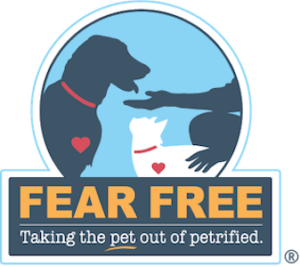Christie Keith
With more than a million cases of COVID-19 diagnosed worldwide, and the number rising, most people are still grappling with the changes and restrictions of life during a global pandemic. News that dogs, cats, and ferrets may be susceptible to the virus only increases the fear, anxiety, and stress pet parents are feeling. What are the facts as we know them today?
Are Pets a Risk to Humans?
Under experimental conditions, some cats and dogs appear to be able to be infected with the virus, two or three pets in Hong Kong seem to have been infected by their owners (but didn’t become ill), and a tiger in the Bronx Zoo tested positive for COVID-19. These facts may be causing some pet parents to worry that their pets are a risk to them.
However, the Zoological Pathology Program at the University of Illinois veterinary college conducted the tests on the tiger, and chief of the program Karen A. Terio told the New York Times, “Given the number of people in this country that have been infected with the virus and have become ill, and the number of people in this country that own domestic cats, it seems fairly improbable that cats are an important source of the virus for people if the first case we’re diagnosing it in is a tiger.”
IDEXX, a national veterinary diagnostic laboratory, has tested thousands of U.S. canine and feline samples, and all came back negative.
And finally, the American Veterinary Medical Association (AVMA) has concluded that “infectious disease experts and multiple international and domestic human and animal health organizations agree there is no evidence at this point to indicate that pets become ill with COVID-19 or that they can spread COVID-19 to other animals, including people.”
Are Humans a Risk to Pets?
While it’s highly unlikely that that our pets are a risk to us, it’s possible humans can pass the virus to our pets, probably without making them ill. The CDC has relaxed some of their guidance for pet owners, and simply recommends the following (most of which is common sense):
If you are sick with COVID-19 (either suspected or confirmed), you should restrict contact with pets and other animals, just like you would around other people. Although there have been no reports of pets becoming sick with COVID-19 in the United States, it is still recommended that people sick with COVID-19 limit contact with animals until more information is known about the virus. This can help ensure both you and your animals stay healthy.
- When possible, have another member of your household care for your animals while you are sick.
- Avoid contact with your pet including petting, snuggling, being kissed or licked, and sharing food.
- If you must care for your pet or be around animals while you are sick, wash your hands before and after you interact with them.
Among the changes triggered by pandemic precautions, the one most likely to impact pets is stress. Routines have been disrupted, their humans are worried about illness and finances, dogs may be missing playtime and social interaction at a dog park or dog daycare, and cats may find a house full of confined family members is less than serene.
While enrichment is always important in a Fear Free Happy Home, it’s critical now. Here are a few ideas:
- Add fun games like a treasure hunt for treats or hide and seek to your pet’s day.
- Try out new games and toys made just for pets.
- Fill a kiddy pool with balls to create a “dig pit.”
- Use the amazing canine and feline sense of smell to create new experiences for your pets.
- Use food puzzles instead of bowls at mealtime.
- Take your dog for a car ride if he enjoys it.
Fear Free will continue to update you on the COVID-19 pandemic as it relates to your pets at fearfreepets.com/covid-19-resources. You can also follow these sources for reliable information:
Worms and Germs blog from the University of Guelph
The New Coronavirus and Companion Animals from the World Small Animal Veterinary Association
Frequently Asked Questions from the World Organisation for Animal Health
COVID-19 Frequently Asked Questions from the AVMA
This article was reviewed/edited by board-certified veterinary behaviorist Dr. Kenneth Martin and/or veterinary technician specialist in behavior Debbie Martin, LVT.




